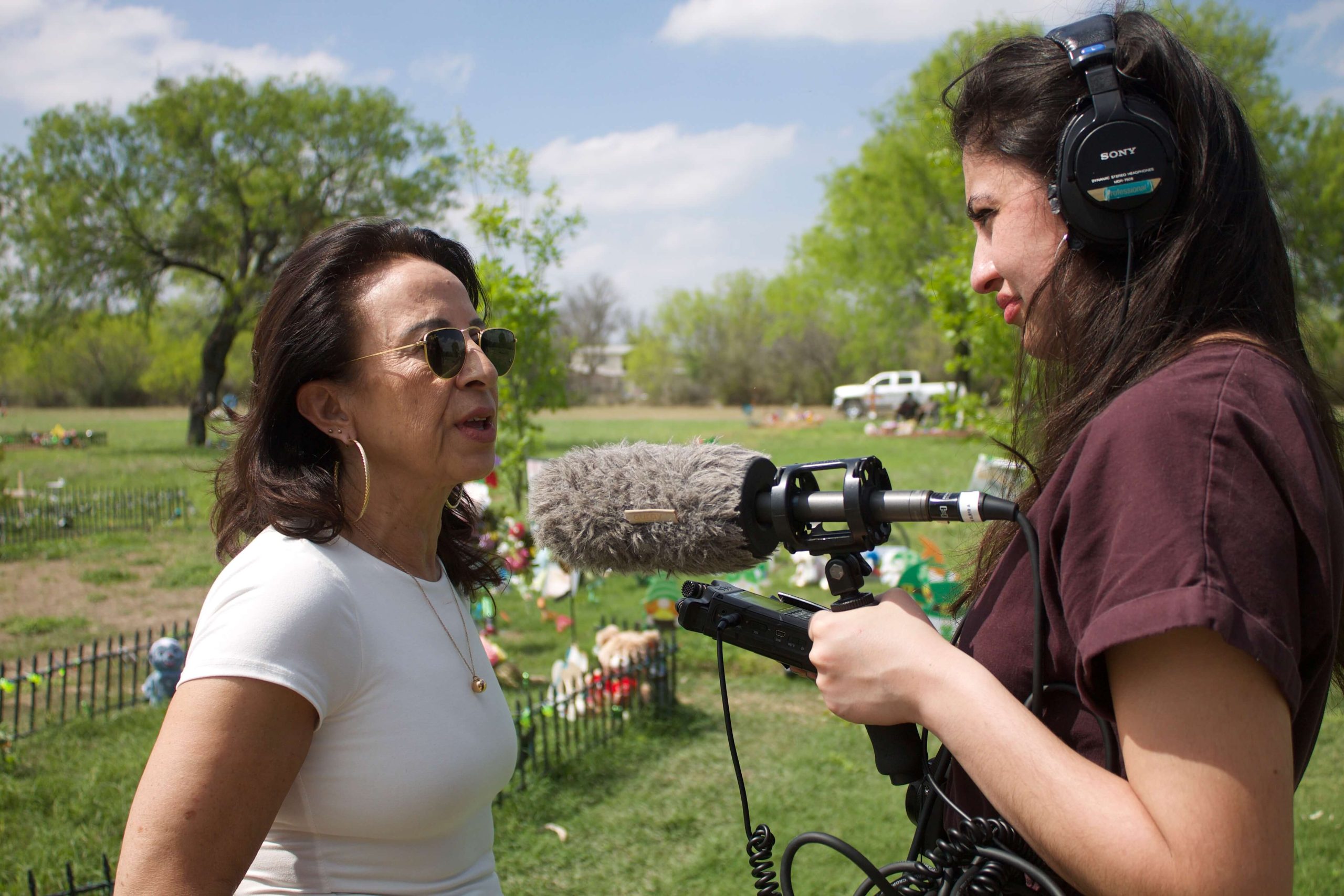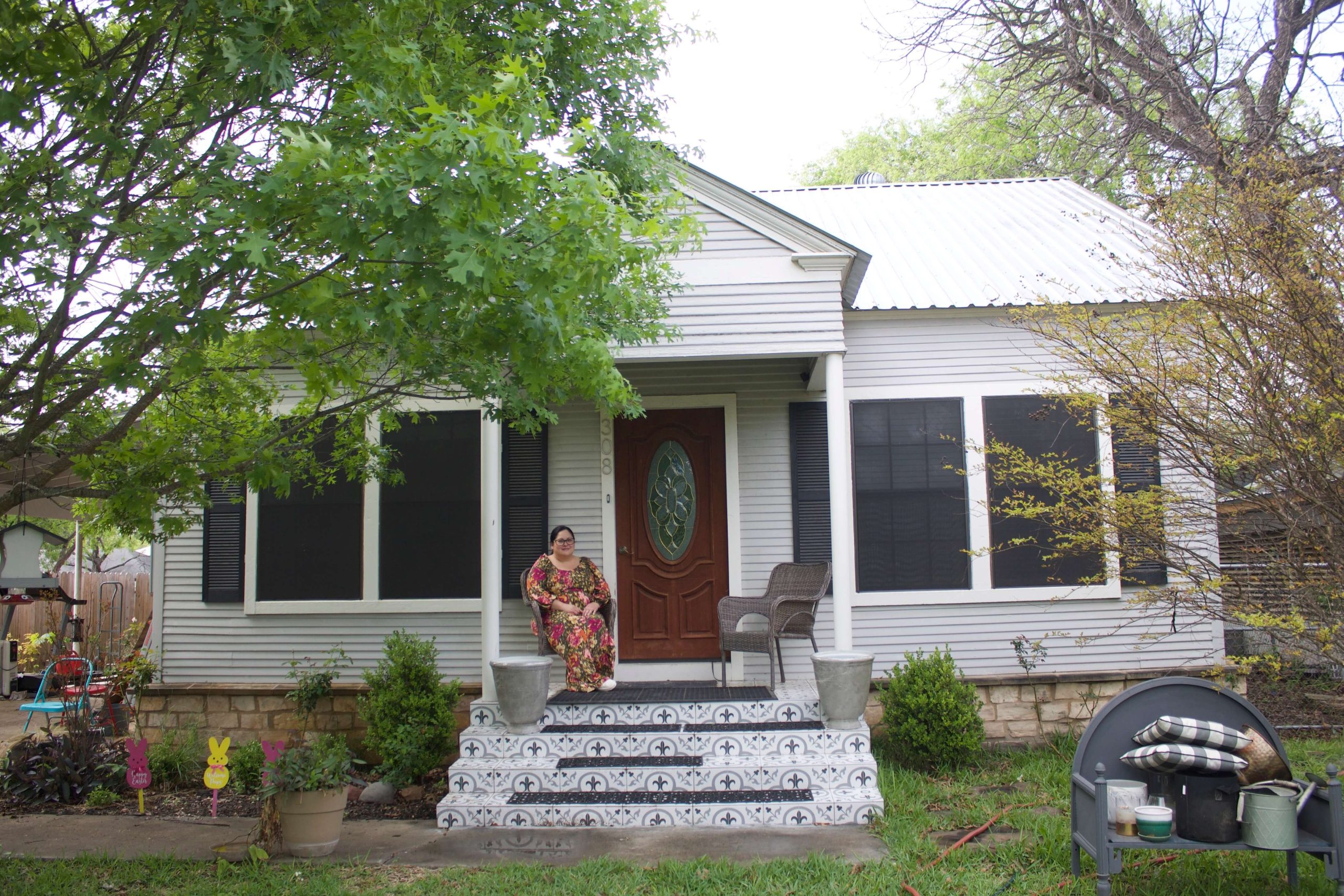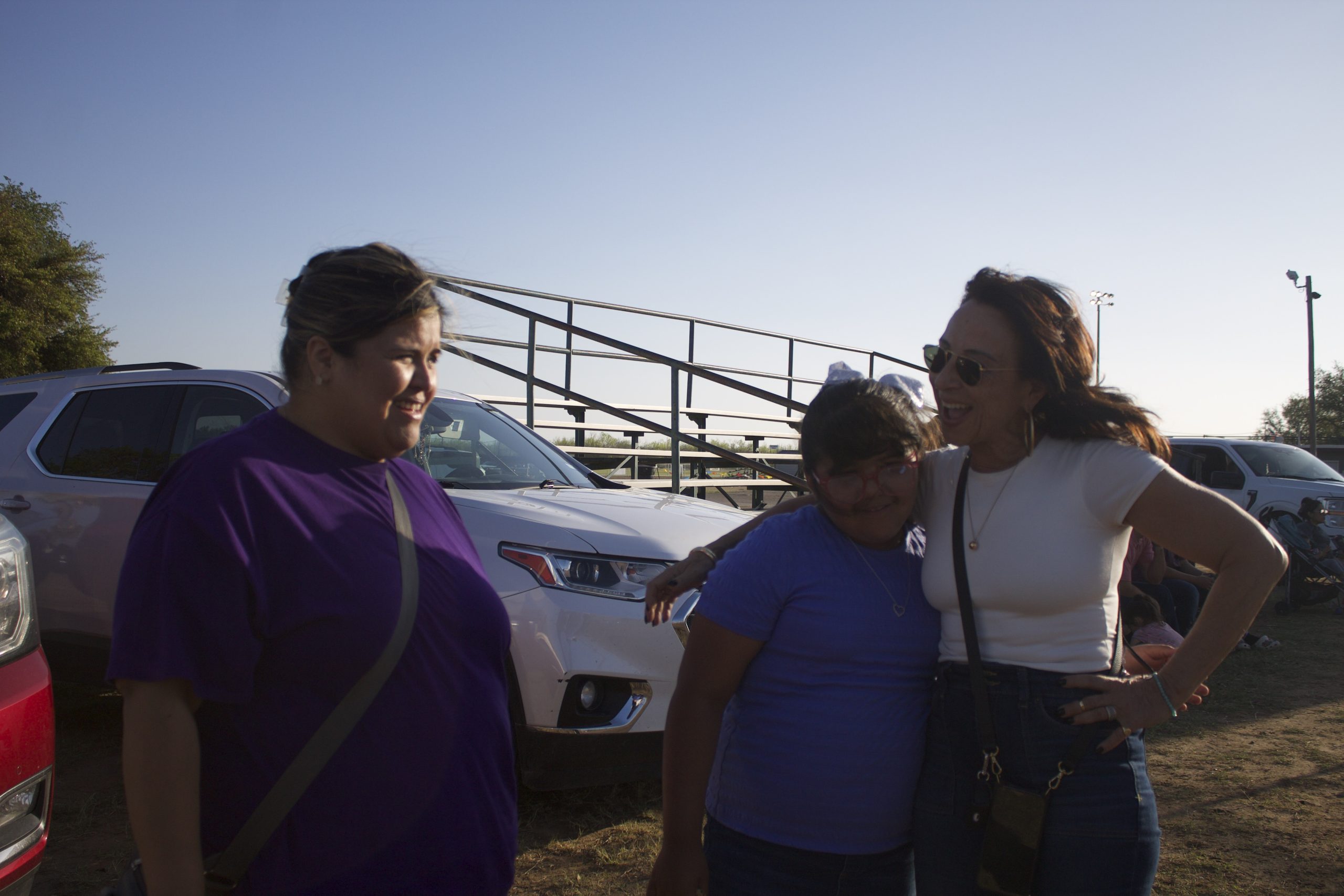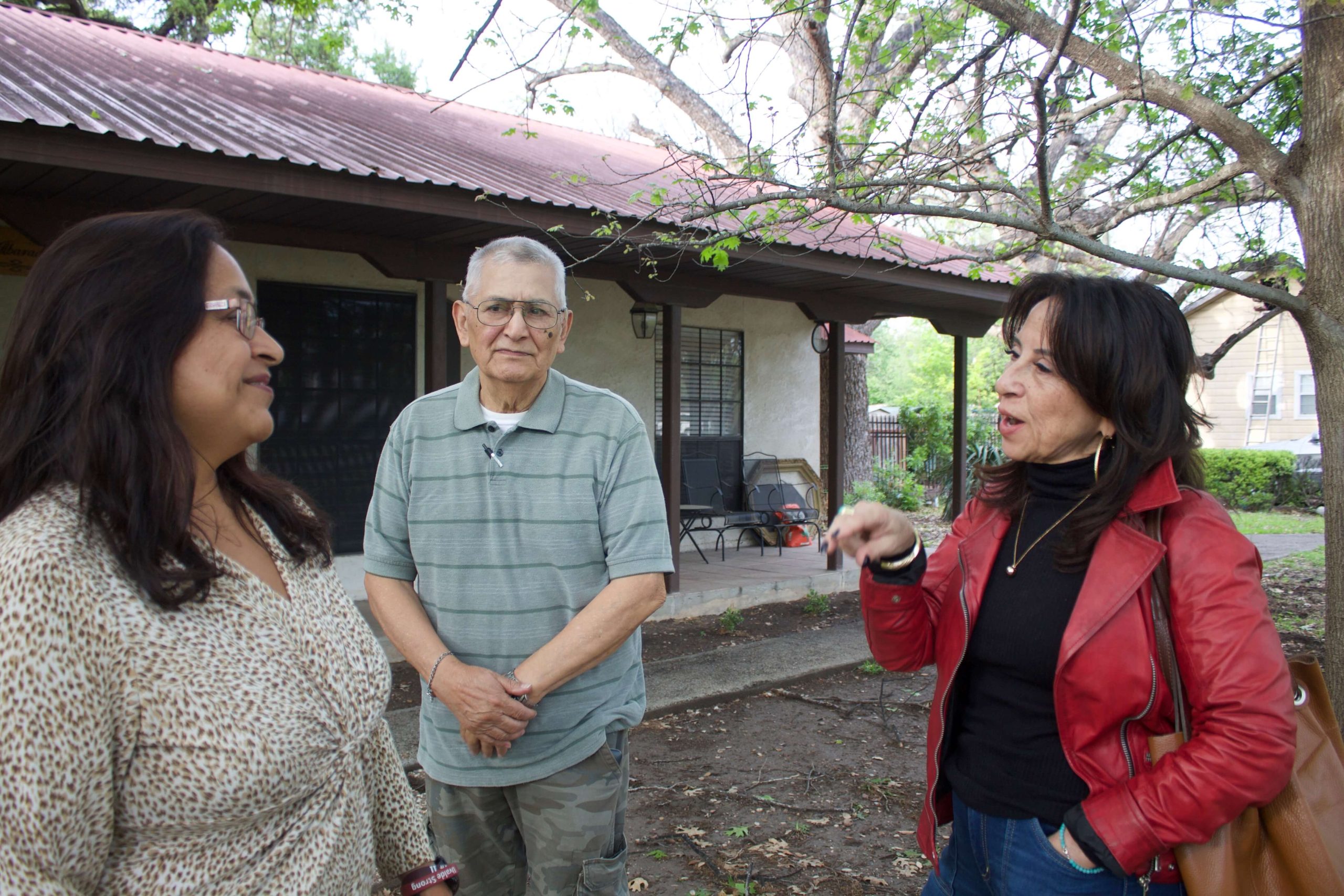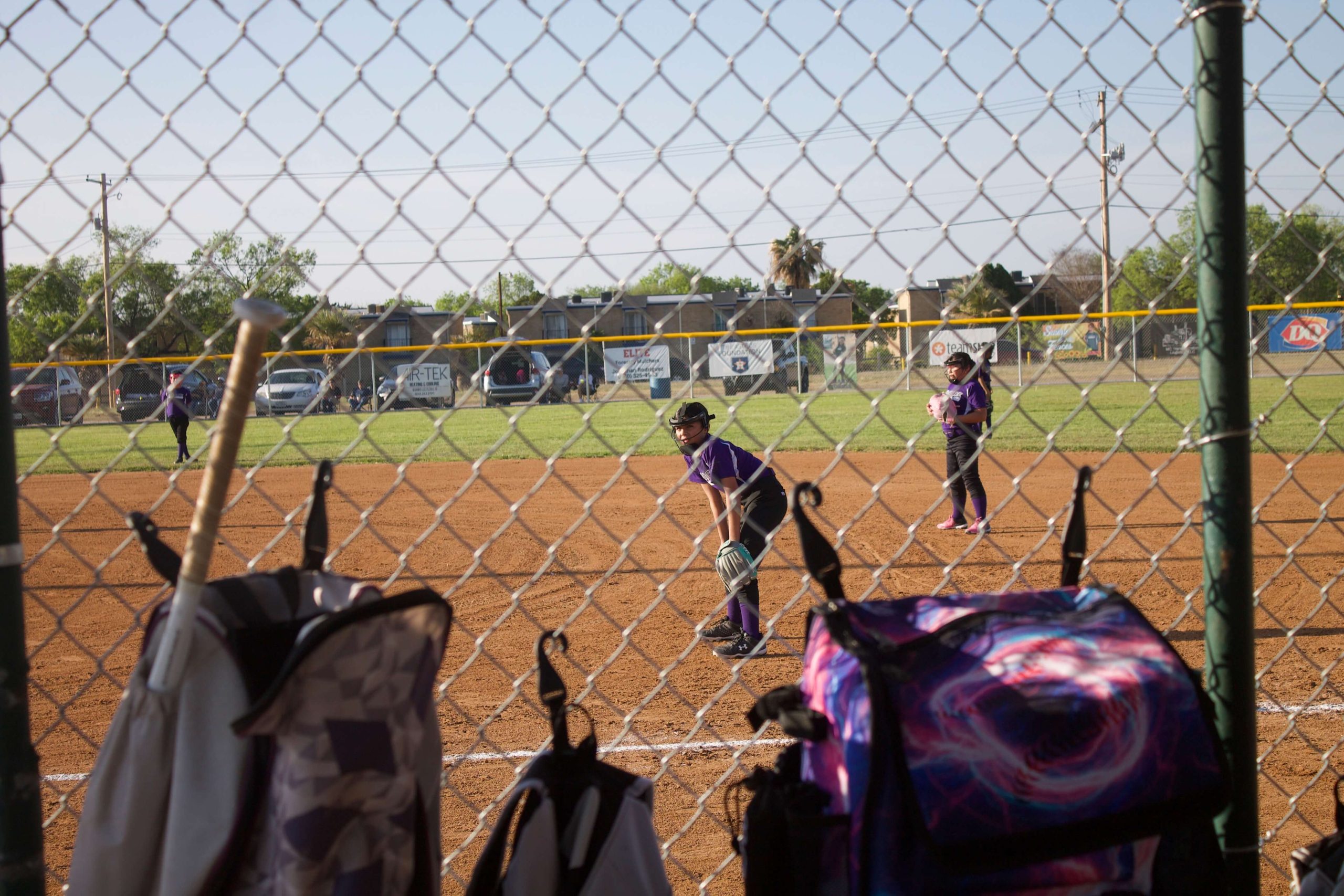
Reporter’s Notebook
What the Uvalde massacre taught me about trauma, resistance and healing: A reporter’s notebook
Table of contents
Reporter's Notebook
UVALDE, Texas.– Before traveling to Uvalde this spring to do some reporting, I was nervous about how I’d deal with being physically there and speaking to people most impacted. I was afraid of my emotional reaction to a story that deeply affected me a year ago when I worked remotely as a producer in the episode Uvalde Resiste, for the podcast Latino USA.
On May 24, 2022, a gunman entered Robb Elementary School in Uvalde. He killed 19 children and two teachers. My colleagues and I considered the mass shooting a turning point in history. It was not just because it became the most deadly mass shooting at a school in recent years. It was also because many Latinos and Latinas were impacted.
We quickly pivoted and formed a team to help produce a one-hour and fifteen-minute episode. We wanted to show a nuanced look at Uvalde’s history of resistance and moving forward in the immediate aftermath. I produced two of the four segments of that episode, which aired in June 2022.
One segment was a conversation between our show host Maria Hinojosa and the historian from Uvalde, Monica Muñoz Martinez.
She has researched police violence against Latinos and Latinas in Texas and along the border. She told us about the long history of discrimination against Mexicans in Uvalde and across the state.
When I prepared the questions, I wasn’t ready for how emotional and triggering this interview would be. During that conversation with Maria, I heard a deep pain in Monica’s voice. Through tears, she talked about her community, how this trauma would stay with her and others for a long time, and her frustration with the lack of mental health care in Uvalde.
I remember texting Maria during the interview, suggesting we revise the last few questions to try and end our conversation with Monica on a hopeful note. I strongly felt that we could not end the interview with so much pain.
Over the next few days, I cleaned up the transcript, picked out audio selects, and trimmed down the conversation. Every time I listened to the tape, I started to cry. It was unimaginable to me what Monica, her community and the people directly impacted were going through.
I found myself starting to go down a path of playing out what happened at Robb Elementary School and also, like many others, not understanding the lack of response from law enforcement that day. I realized that another reason it impacted me deeply was not only because most of the victims were so young, but many of these children were Mexican descendants who looked like me and my family members.
While working on that episode on a tight deadline, I found that this story also unlocked personal traumas. It reminded me of other difficult stories I’ve covered in my journalism career, like speaking with family members of people who ‘disappeared’ in El Salvador, or asylum seekers on the border who told me about their terrible journeys to get to the U.S., other mass shooting victims and more. Everything hit me at once and I kept it to myself. Looking back, I should have shared what I was feeling. I didn’t. I pushed on.
After we finished the episode, I realized: I needed to seek therapy, something I had been putting off for a while. I was also turning 30 last year. I wanted to enter the new decade, focusing more on my mental, physical and spiritual health —another part of my life that I had often neglected in the past.

Maria Hinojosa walks in front of a mural with the image of Jackie Cazares, a victim of the Uvalde massacre. Reynaldo Leaños, Jr./Futuro Media
Nearing the new year in 2023, our Latino USA team began discussing a follow-up episode to “Uvalde Resiste.” There had been many developments in the story over the past months, and we knew our coverage needed to provide context and humanity, to make sense of what had happened.
Then it clicked. Maria and the Futuro Investigates team would be traveling to Uvalde to film with FRONTLINE the documentary “After Uvalde: Guns, Grief and Texas Politics.” The coverage was a partnership of Futuro Investigates with FRONTLINE and the local news organization The Texas Tribune.
At Latino USA, we were allowed to use some audio they gathered while reporting for our own episode, as well as travel to Uvalde to gather our own audio for the story.
My colleagues’ sources for the documentary included Caitlyne Gonzales, who survived the Uvalde massacre, and her parents. Caitlyne was also featured in our 2022 Latino USA episode. She and her mom, Gladys Gonzalez, were standing outside a memorial just a few days after the shooting when our correspondent, Stella Chavez, approached them. Caitlyne didn’t hesitate to answer questions.
The story of the Gonzalez family is one of resilience — like most survivors in Uvalde. It is also one of trauma, healing and fighting to get access to adequate mental health care. During the past year, the family has been taking action to help change gun laws across the state. In rallies and media interviews, Caitlyne has publicly criticized the official response to the shooting. She and her family have also been supporting the approval of two bills in the Texas legislature. The bills aimed to raise the purchasing age of AR-15-style weapons from 18 to 21 years old. That’s the same type of weapon used by the 18-year-old shooter in the massacre.
So, when my colleague and co-producer Sofía Sánchez and I learned that this family would be featured in the FRONTLINE documentary, we knew we also wanted to include them in the new episode of Latino USA. I was interested in learning how Caitlyne was coping a year later.
As the FRONTLINE team recorded their scenes and interviews, I went through the audio with Sofia. Soon, we decided: for the podcast, we wanted more intimate interactions between Maria and Caitlyne. We organized a new reporting trip to Uvalde with Maria to record more audio and new scenes.
I made a game plan with my therapist that included meditation, checking in with her to process what was going on, making sure not to keep anything inside if any difficult feelings arose and more. Everything went well.
Once in Uvalde, we were able to capture moments that showed a lot of nuance, love between Caitlyne’s family and calls for change from the community. One of my favorite parts of this reporting trip was seeing Caitlyne begin to heal after months of therapy. She sang karaoke with us and we got to attend one of her softball games. We also learned that Caitlyne’s mom, Gladys, was also starting to seek therapy for herself to begin healing. Their fight for change and healing brought me back to my first connection to Uvalde, which started almost seven years ago. In 2016, I was a freelance journalist working on a story for Latino USA in Austin. I set out to tell the story of the Texas Rangers and their bloody history, especially on the U.S.-Mexico border, where I’m from.
Growing up in the Rio Grande Valley of south Texas, I never learned in school about the Rangers’ legacy of violence against Mexicans and Mexican Americans.
While reporting in Austin, I met the descendants of several families who had been killed and brutalized by the Texas Rangers, including Benita Flores Albarado, who told me the story of her father, Juan Bonilla Flores.
Juan witnessed a massacre in Porvenir —a small town in western Texas. Benita shared very graphic and intense stories about what happened to her father. I also knew there was a subtle hint of generational trauma. At the time, I didn’t explore that angle of the story.

Latino USA looks into the long and little-told history of segregation, discrimination, and state-sanctioned violence towards Mexicans and Mexican-Americans in the Southwest. Photo by Robert Runyon/Courtesy of the Dolph Briscoe Center for American History
During that reporting trip, I met historian Monica Muñoz for the first time. I remember her talking passionately about the history of the region and its relationship to violence, some of it committed by law enforcement and white families against Mexicans and Mexican Americans.
Monica and Benita felt it was essential that they shared this knowledge to keep this part of Texas history alive. It’s a story that has stayed with me until this day.
Some time went by and I connected on Facebook with Benita’s daughter, Elsie Routh. She told me her mom passed away from cancer. She wanted to let me know because I had helped get their family’s story out for others to hear. I was honored to have contributed to documenting their family’s history because it’s a part of history that is often forgotten about or people don’t know, like me.
That’s when I realized that Elsie and her family live in Uvalde.

Elsie Routh has photos of her mother Benita Flores Albarado scattered around her home in Uvalde, Texas. Reynaldo Leaños Jr./Futuro Media
For my reporting on Uvalde this spring, I wanted us to include some of Elsie and her family’s stories about the Porvenir massacre in 1918. I found parallels with the Uvalde massacre — like generational trauma, healing and the lack of mental health care and access that has historically been in Texas. Elsie’s family witnessed two massacres —even if generations apart — so I wondered how the mass shooting in Uvalde affected them.
I visited Elsie’s family with Maria and Sofía. We spoke about how the trauma that their grandfather, Juan, witnessed trickled down generations, something that could also happen to the Uvalde community. We also talked about the importance of getting mental health care in order to try and heal. That’s something that wasn’t accessible to Juan many years ago and something that many in Uvalde are needing since May 2022.
Now, Caitlyne and her family are seeking that healing and Caitlyne is using her voice to speak out.
I’m very proud of the work that we’ve done for this episode for Latino USA. We touch on issues of mental health access, healing, trauma, and fighting for change. We do so in a compassionate way, through the voices of some incredible people we’ve been so lucky to meet. Along the way, I’ve also been able to start my own journey of accessing mental health therapy. As a reporter from Texas, I’m honored that so many people let us into their lives for this audio documentary, and to help document this moment in history.



